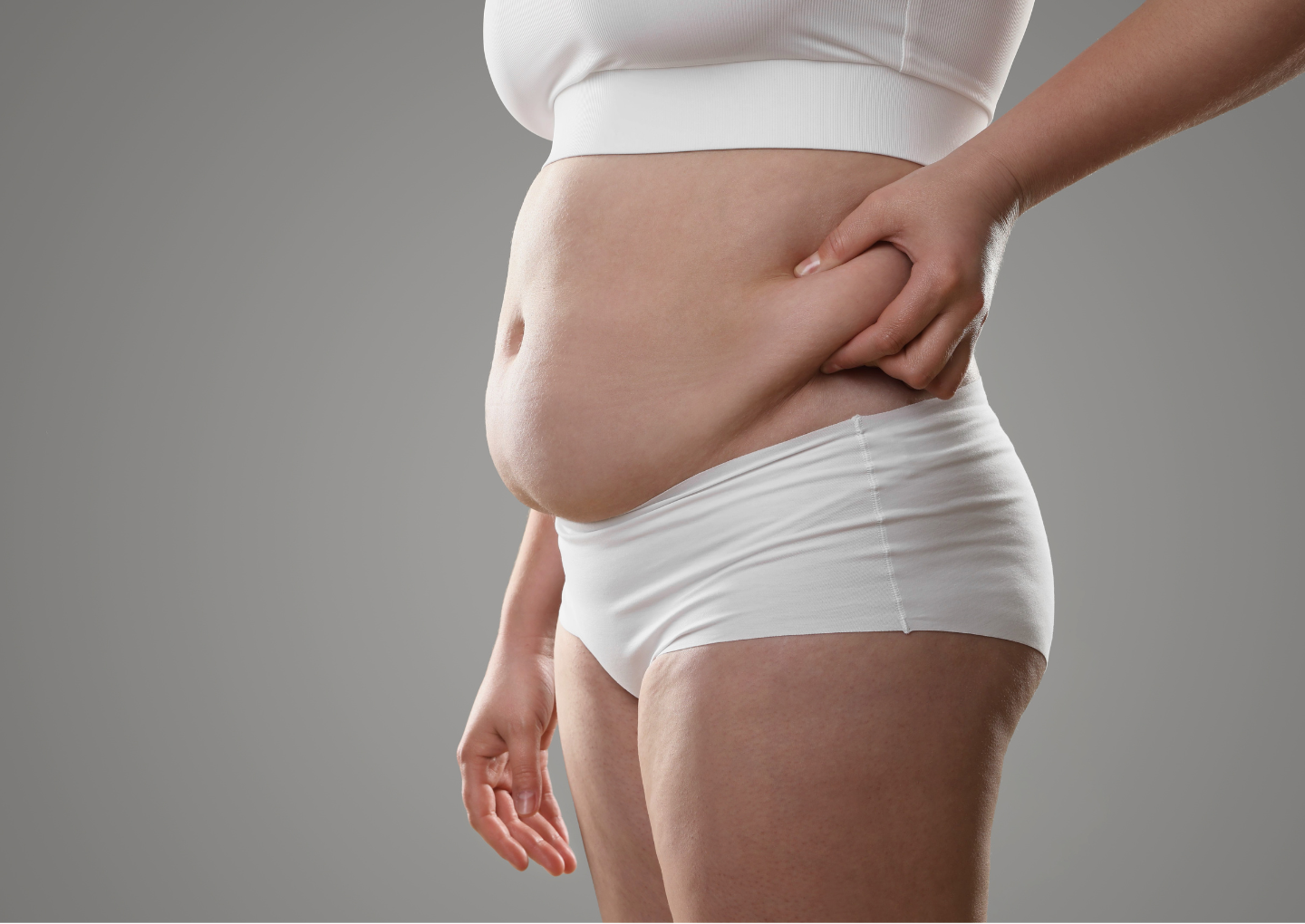No More Muffin Top — Leaving The Menopause Waistline Behind

Menopause is the dreaded natural stage in every woman’s life when hormonal changes mark the end of menstruation.
While many women anticipate hot flashes and mood swings, one of the lesser-discussed but significant changes is the accumulation of belly fat. If you’ve noticed an expanding waistline during this time, you’re not alone — many women experience this shift, but understanding why it happens can help you take control and get you back into your old jeans.
Why Belly Fat Increases During Menopause
Hormones
As oestrogen levels decline during the menopause, the body’s fat distribution tends to change.
Oestrogen, which previously helped regulate fat storage, especially around the hips and thighs, shifts to favour more visceral fat around the abdominal area. Visceral fat is the deep, internal fat that surrounds your organs, and it’s been linked to a higher risk of metabolic issues like type 2 diabetes and heart disease.
Metabolism
A natural slowing of metabolism occurs with age for everyone — meaning the body burns fewer calories at rest. This can lead to weight gain, especially if your eating habits and activity levels don’t adjust accordingly to combat this.
Stress and Cortisol
Perimenopause and menopause often come with an increase in stress levels, whether due to hormonal changes, sleep disruptions, or lifestyle factors. Elevated stress can lead to higher cortisol levels, a hormone that promotes fat storage, particularly in the abdominal area — maybe you should take Deb up on that yoga class invite.
Muscle Mass
As women age, they naturally lose muscle mass, a process called sarcopenia. Muscle burns more calories than fat, so losing muscle can further contribute to weight gain, especially around the belly — get strength training!
What You Can Do About It
While to everyones disappointment, you can’t stop the natural processes of aging and hormonal changes, there are several steps you can take to manage that ever growing tyre of belly fat during the menopause:
- Exercise — I know you probably don’t want to hear it, but combining strength training (to preserve muscle mass) with a bit of cardiovascular exercise is key. Aim for at least 30–40 minutes of strength training 3 times a week with activities like brisk walks and swimming in between. Weight training will gain you muscle mass which will improve your metabolic rate and burn calories whilst improving bone density and keeping you away from any nasty falls — it couldn’t be better for you (and don’t worry ladies, you won’t turn into any kind of hulk unless you practically live in the gym).
- Diet — Focus on a nutrient-dense, anti-inflammatory diet rich in whole foods — fruits, vegetables, lean proteins (1g per pound of body weight), and healthy fats. Avoid refined sugars, processed foods, and excessive alcohol, which can contribute to weight gain and bloating. Foods high in fibre also help regulate hormones and keep you feeling full.
- Stress — Try to lower stress levels through techniques such as meditation, yoga, or deep breathing exercises. Regular exercise, socialising, and making time for activities you enjoy can also help keep cortisol in check — you don’t need any other factors fighting against you here.
- Sleep — Sleep disturbances are common during menopause, but insufficient rest can contribute to weight gain, especially around the abdomen. Aim for 7–9 hours of quality sleep each night to regulate hormones and support your metabolism. If you’re exercising regularly your body will need the down time to rest and repair and keep you in fighting fit order.
- Hydration — Drinking plenty of water helps keep your metabolism running smoothly and will help with the bloating as well as keeping those muscles on top form; hydrating each and every cell in that amazing body of yours.
I know this all sounds very cliche but there’s a reason why these points are preached upon so much. It’s not rocket science. You look after your body — your body looks after you.
The menopause is just one chapter in your life — and with the right approach, you can make the most of it, feeling strong, confident, and in control.
